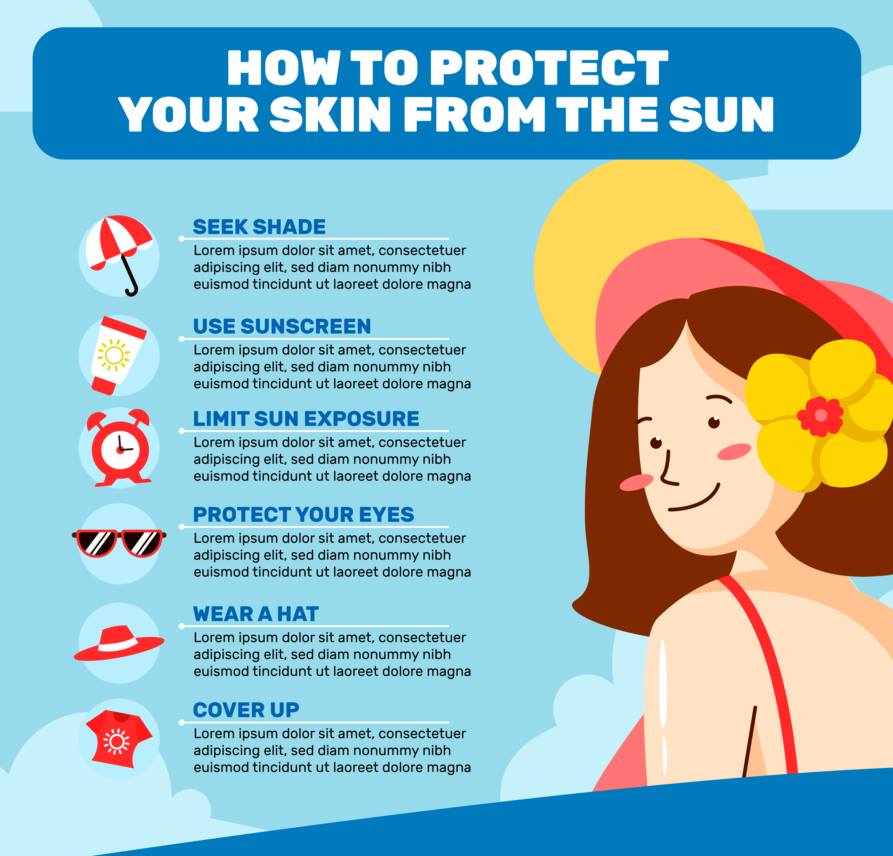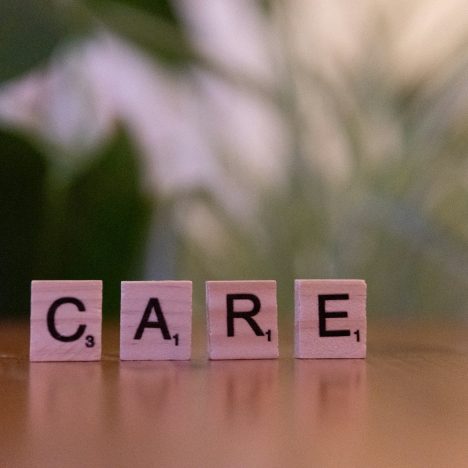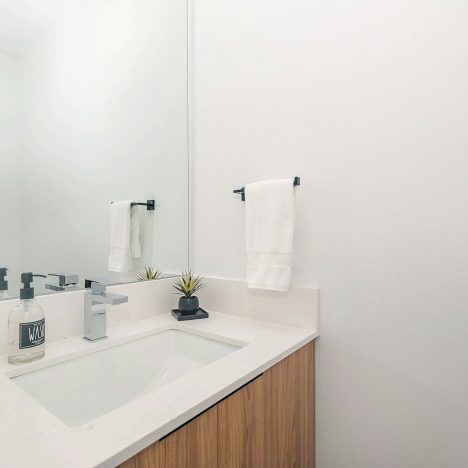Glowing Skin Tips: Effective Home Remedies To Improve Your Skin Health

Taking care of your skin is essential because it's the biggest organ you have. Having radiant skin is often associated with good health and energy. On the contrary, having dull or dry skin can make you feel less confident. By giving your skin the attention it deserves, you're practicing self-care that can result in a noticeable glow. However, achieving that glow can be more difficult when dealing with stress, nutritional imbalances, hormonal issues, or other health conditions.
How Can I Make My Face Glow Naturally?
There are several ways to achieve a natural glow without relying on makeup or artificial products. Here are some tips for making your face glow naturally.
Stay Hydrated
Drinking enough water is essential to maintain the healthy appearance of your skin. Water plays a crucial role in hydrating the body, including the skin. Furthermore, it helps to flush out toxins, keeping your skin clear and radiant. By ensuring you drink at least 8 glasses of water every day, you can achieve a youthful and fresh complexion.
Water acts as a natural moisturizer for the skin, helping to maintain its elasticity. When the body is adequately hydrated, the skin is less prone to dryness, flakiness, and irritation. This hydration also supports the reduction of fine lines and wrinkles, as well as the prevention of premature aging.
Eat a Balanced Diet
In addition to providing essential nutrients, eating plenty of fruits, veggies, lean meats, and whole grains can have numerous benefits for your skin. These foods are rich in vitamins, minerals, and antioxidants that play a crucial role in maintaining healthy skin. By incorporating these foods into your diet, you can provide your skin with the essential nutrients it needs to look and feel great. Not only will your skin benefit from improved hydration, elasticity, and protection against damage, but you may also notice a reduction in skin issues such as acne, redness, and irritation.
For instance, whole grains, such as brown rice and quinoa, are rich in fiber and complex carbohydrates. These nutrients help regulate blood sugar levels, preventing insulin spikes that can contribute to acne and other skin issues. Whole grains also contain vitamins and minerals that support overall skin health. On the other hand, antioxidant-rich foods, such as berries, greens, and nuts, provide an extra layer of protection for your skin. Nuts, such as almonds and walnuts, contain omega-3 fatty acids, which help maintain the skin's moisture barrier and reduce inflammation.
Exercise Regularly
Regular exercise boosts blood circulation, enhancing the nourishment of skin cells and maintaining their vitality. Additionally, it aids in flushing out toxins from the body, resulting in a more vibrant and healthier complexion. Furthermore, exercise can increase collagen production, which is essential for maintaining skin elasticity and firmness. This can help to reduce the appearance of fine lines and wrinkles, giving your skin a more youthful appearance.
In addition to these benefits, exercise can also improve overall skin tone and texture by increasing blood flow to the skin's surface. This can result in a natural glow and a more even complexion. By incorporating exercise into your routine, you can improve your overall well-being and promote a clearer, more radiant complexion.
Get Quality Sleep
Lack of sleep can lead to dark circles, puffiness, and a dull complexion. To counteract these negative effects, it is crucial to prioritize getting enough sleep each night. The recommended amount of sleep for adults is typically between 7 to 9 hours. By allowing our bodies to rest and repair during this time, we give our skin the opportunity to regenerate and replenish itself.
Getting sufficient sleep not only helps reduce the appearance of dark circles and puffiness but also promotes a healthier complexion overall. It allows the skin to maintain its natural moisture balance, preventing dryness and flakiness. Additionally, quality sleep helps regulate hormone levels, reducing the likelihood of breakouts and promoting a clearer complexion.
Practice Skin Care
Make sure to cleanse, tone, and moisturize your skin two times a day to get rid of impurities and keep it well-hydrated. Choose products that are perfect for your skin type, and stay away from those that have harsh chemicals or irritants.
When selecting skincare products, it is important to consider your skin type and concerns. If you have sensitive skin, opt for products that are fragrance-free and formulated without harsh chemicals or irritants. Avoid ingredients like sulfates, parabens, and artificial fragrances, as they can potentially cause irritation or allergic reactions. Instead, choose products that are labeled as hypoallergenic or specifically designed for sensitive skin. We have to take
Wear Sunscreen
Excessive sun exposure can lead to sun damage, premature aging, and skin cancer. Protect your skin by wearing sunscreen with an SPF of at least 30, even on cloudy days. Seek shade when the sun’s rays are strongest, between 10 a.m. and 4 p.m., and wear protective clothing, such as wide-brimmed hats and long-sleeved shirts.
Additionally, it is important to reapply sunscreen every two hours, especially after swimming or sweating. Avoid tanning beds and opt for self-tanning products instead. Regularly check your skin for any changes or abnormalities, and consult a dermatologist if you notice anything suspicious. Remember that protecting your skin from the sun's harmful rays is essential for maintaining healthy and youthful skin in the long run.
Manage Stress
Inflammation is the body's natural response to stress, but when it becomes chronic, it can lead to a variety of health issues, including skin problems. By reducing stress through relaxation techniques, you can help prevent inflammation from wreaking havoc on your skin.
Yoga, meditation, and deep breathing exercises have been shown to lower cortisol levels, the stress hormone that can contribute to inflammation. By incorporating these practices into your daily routine, you can help keep your skin healthy and clear. Taking care of your body and mind can help you reduce the impact of stress on your skin and improve your overall well-being.
Try Facial Massages
Facial massages can help improve blood circulation and thereby reduce puffiness. You can try doing it yourself or visit a professional esthetician for a more relaxing experience. Facial massages can also help to relax facial muscles, reduce tension and stress, and improve the overall appearance and health of your skin. By increasing blood flow to the face, facial massages can also promote collagen production, which can help to reduce the appearance of fine lines and wrinkles over time.
When done by a professional esthetician, facial massages can be customized to target specific concerns or problem areas, such as acne, dryness, or uneven skin tone. Estheticians are trained to use specific techniques and products that can help to address these issues and leave your skin looking and feeling rejuvenated.
Use Natural Face Masks
Using face masks with natural ingredients like honey, yogurt, avocado, or turmeric is a great way to moisturize and revitalize your skin, giving it a radiant look. These ingredients are packed with nutrients and antioxidants that can nourish and hydrate your skin, leaving it soft, supple, and glowing.
Honey
Honey, for example, is a natural humectant that helps to attract and retain moisture in the skin. It also has antibacterial properties that can help to fight acne-causing bacteria and reduce inflammation. Yogurt, on the other hand, contains lactic acid, which gently exfoliates the skin, removing dead skin cells and promoting cell turnover. It also has a soothing effect on the skin, reducing redness and irritation.
Avocado
Avocado is rich in healthy fats and vitamins A, C, and E, which are all beneficial for the skin. It helps to nourish and moisturize the skin while also providing antioxidants that can protect against environmental damage. Additionally, avocados contain natural oils that can help to improve the skin's elasticity and reduce the appearance of fine lines and wrinkles.
Turmeric
Turmeric, a spice commonly used in Indian cuisine, has powerful anti-inflammatory and antioxidant properties. It can help to calm and soothe the skin, reducing redness and irritation. Turmeric also has skin-brightening properties, which can help to even out the skin tone and give it a healthy glow.
Avoid Cigarettes And Alcohol
Smoking can lead to premature aging, wrinkles, and a dull complexion. Limiting alcohol intake can help prevent dehydration and maintain healthy-looking skin. The chemicals present in cigarettes, such as nicotine and carbon monoxide, restrict blood flow to the skin, depriving it of essential nutrients and oxygen. This lack of nourishment weakens the skin's elasticity, causing it to lose its firmness and suppleness, resulting in the formation of wrinkles and fine lines.
On the other hand, by moderating your alcohol consumption, you can effectively prevent dehydration and maintain a healthy, vibrant complexion. Alcohol has diuretic properties, which means it increases urine production and can cause dehydration in case of excessive consumption. Dehydration, in turn, can cause the skin to become dry, flaky, and dull. It can also exacerbate the appearance of fine lines and wrinkles, making them more noticeable.
How Can I Glow In 7 Days?
To achieve glowing skin in just 7 days, it is important to follow a consistent skincare routine that focuses on hydration, exfoliation, protection, and nourishment. Here are some steps you can take to improve your skin’s appearance in a week:
- Hydrate: Drink plenty of water throughout the day to keep your skin hydrated from within. Hydrated skin looks plumper and more radiant.
- Cleanse: Start your day with a gentle cleanser to remove any impurities that may have accumulated overnight. Choose a cleanser that suits your skin type to avoid stripping your skin of its natural oils.
- Exfoliate: Use a gentle exfoliator to slough off dead skin cells and reveal fresh, glowing skin underneath. Exfoliating helps improve skin texture and allows better absorption of skincare products.
- Moisturize: Apply a hydrating moisturizer after cleansing to lock in moisture and keep your skin supple. Look for ingredients like hyaluronic acid or glycerin for added hydration.
- Protect: During the day, apply a broad-spectrum sunscreen with at least SPF 30 to shield your skin from harmful UV rays. Sun protection is crucial for maintaining healthy and radiant skin.
Summer Skin Care Tips
Summer brings warm weather, outdoor activities, and longer days. However, it also presents challenges to maintaining healthy skin. Here are some tips to help you take care of your skin during the summer:
Sun Protection
The most important step in summer skincare is sun protection. Use a broad-spectrum sunscreen with an SPF of at least 30. Apply it generously 15-30 minutes before going outside and reapply every two hours or immediately after swimming or sweating. Also, wear protective clothing like wide-brimmed hats, sunglasses, and long-sleeved shirts.
Proper Hydration
Drink plenty of water to keep your skin hydrated from the inside out. This can help maintain your skin’s elasticity and prevent dryness.
Moisturize
Use a lightweight, oil-free moisturizer to keep your skin hydrated without feeling greasy. Moisturizing can also help your sunscreen work better by creating a barrier between your skin and the environment.
Gentle Exfoliation
Regular exfoliation can help remove dead skin cells and unclog pores, but be gentle during the summer months to avoid irritation. Avoid harsh scrubs and opt for gentle chemical exfoliants instead.
Avoid Hot Showers
Hot showers can strip your skin of its natural oils, leading to dryness and irritation. Opt for warm showers instead and keep them short.
Protect Your Lips
Your lips can get sunburned too! Use a lip balm with SPF to protect them from the sun’s harmful rays.
Medication Awareness
Some medications can make your skin more sensitive to the sun. Check with your doctor or pharmacist if you’re unsure about any medications you’re taking.
Balanced Diet
A healthy diet rich in fruits, vegetables, lean proteins, and healthy fats can help support your skin’s health from the inside out.
Get Enough Sleep
Lack of sleep can lead to dull, tired-looking skin. Make sure you’re getting enough rest each night to allow your skin to rejuvenate.
Regular Check-ups
Regularly check your skin for any changes or abnormalities. If you notice anything concerning, consult with a dermatologist or healthcare professional.












